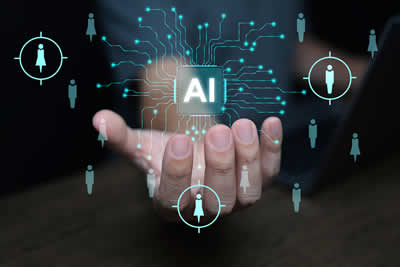As you’ll know, learning new skills to improve productivity and streamline processes is essential if you want to stay competitive. And perhaps surprisingly, one of the most effective ways to enhance project management performance is through the use of HR technology (HR Tech). By adopting HR tools into project management systems, businesses can not only improve their operational efficiency but also provide employees with valuable business skills that contribute to a more interconnected and productive work environment.

What is HR Tech?
HR Technology is a name given to software and systems used to simplify and automate most human resource processes like payroll, time management, hiring, and performance management. Apart from helping employee development, HR technology may also assist with project management and collaboration with learning tools. Integrating HR tools in your organization enables improved workforce management, decision-making, and overall increased efficiency and productivity.
Learning Business Skills with HR Tech
HR Tech has many advantages, primarily equipping people for a competitive workplace with valuable business skills. Improving communication, collaboration, and time management is essential in modern business, and an HR system can do just that. HR isn’t just about job ads and employment contracts! Companies can now easily monitor how many hours are worked, how often an employee attended, and their productivity, through time card software. Such data is useful in training employees for self-improvement and in turn, enhances self-development and management skills.
1. Time Management Skills with Time Card Apps
Time management is a necessary skill for everyone at work, and especially important to people who manage projects.
Time card apps provide evidence of hours worked which allows them to manage time better. HR Tech software can help an employee track time taken to complete an activity, cross-check overtime, and determine ways in which productivity may be improved. Understanding effective usage of time enables employees to prioritize tasks more efficiently, allocate duties … and even avoid burnout.

This ensures that all tasks are completed within expected time frames, and allows project managers to monitor the productivity of workers … from which they can make required changes in processes. Time card apps also allow managers to understand team performance in order to recognize areas of skill development and coaching.
2. Enhanced Project Management
Successful project management requires a mix of organizational ability, delegation skills, and ability to track performance. HR software typically comes with embedded features that facilitate organizations to more effectively plan and track projects so that managers can assign tasks, set deadlines, and track completion rates in real-time. It’s also possible to break down big projects into small tasks and equip each task with the software and equipment needed for the job.
Also, by making HR systems sync with project management tools (think Trello or Asana) you can have seamless process flow between HR, project management, and task management. This way, your team can see all the information they need from a single location, making it easier to collaborate and stay on track. For more about how project management solutions can contribute to enhancing your workflow, check out our article on
project management solutions.

3. Automating Routine Tasks to Focus on Strategic Work
HR Technology can automate some of the more routine tasks that waste valuable time, like payroll, attendance, and employee induction. Automating these processes frees up employees and managers to focus on more strategic higher-level work, such as business process enhancement or (of course) learning new skills. Using software tools like employee time tracking applications, organizations can increase workflow efficiency by reducing the time that’s spent on administrative activities.
For instance, in-house HR software can report on employee performance, enabling managers to view what extra skills employees may need to develop. Reporting also helps the employees themselves see where they can improve their own productivity. From this, they can learn to become more effective at their job, which benefits both their career and the company. For more information on improving HR workflow efficiency, check out our article
HR Automation Strategies to Boost Your Workflow.

4. Encourage Employee Collaboration
Effective collaboration (and communication) are at the heart of any project's success. HR Tech can be built with features that allow collaboration in teamwork, where employees can share development of the project in real time. Systems that include messaging and collaboration features will provide a common platform upon which employees can comment on projects, give each other feedback, and create ideas.
For instance, software like Slack or Microsoft Teams, when integrated with HR software, can provide teams with vastly improved communication as well as tracking tasks and deadlines. These tools help people learn the importance of collaboration, which is (obviously) central to achieving success in any project. To read more about the future of HR Tech and how it can impact business operations, read this article on
Forbes' HR Technology Trends.
Conclusion
The adoption of HR technology into your business processes will give you a great advantage as it teaches indispensable skills like time management, project management, and collaboration (communication). Using time card software and project management software not only increases the workflow of the business, but also helps employees to master vital skills. The more companies spend on HR technologies, the more prepared they will be to meet the changes of modern workplaces … and improving the experience of employees and clients at the same time.

If you'd like to learn more about what we provide, why not take a look at how we can help?
Boost your skills with our market-leading online courses at super-low prices.





























